We, members of L’Internationale, speak as the genocide of Palestinians is being broadcast to the world while those speaking out against it are being silenced.
We speak as the cultural field is threatened anew by the censorship, self-censorship, pre-censorship, language policing, cancellation, disinvitation and defunding of politically dissenting voices.
We speak as the cultural field has turned into a battleground.
We see the imperative to overcome our collective failure to find a common voice.
We see the imperative to speak together, which is not always allowed, encouraged or trusted.
We speak with friends and allies whose strength and words empower us.
To the artists, poets and writers who refuse complicity in silence, who understand that silence is a position.
To the cultural workers who reclaim their right to have their own voice and to not echo the position of the institution and the state.
We see censorship and the criminalization of political dissent
returning to so-called liberal democracies.
We see artists and activists being arrested in the streets.
We see cancelled programmes everywhere.
We see artists and cultural workers being disinvited.
We see artists and activists being shadow banned.
We see websites being shut down.
We see contracts not being renewed.
We see artists and cultural workers being defunded.
Chronicle: ‘The Museum Watch committee is following with concern the dreadful situation in Gaza and its repercussions in the worlds of art and culture—more specifically, its consequences for artists and curators who express their support for the Palestinian people.’
Chronicle: ‘On Monday April 8, 2024, the executive board of ETH Zurich issued a statement announcing that they were cancelling the lecture of Léopold Lambert who had been invited by ETH students.’
To the artists and activists who are cancelled for calling for a ceasefire, for an end to the dehumanization of Palestinians.
To the artists who are withdrawing in protest at institutional censorship.
We see that the ground for silencing was being prepared long before the ongoing genocide in Gaza.
We see the excess of information as having created the conditions for silence and inaction.
We see the impossibility of art during genocide.
We see the necessity of art during genocide.
We see our relationships fracturing.
Chronicle: ‘After giving the matter careful consideration, during which we discussed a number of different options, we have decided to withdraw from the Gorki Theatre’s Lost – You Go Slavia programme in protest against its one-sided statement on the cancelling of The Situation.’
Chronicle: ‘Yto Barrada, Diedrick Brackens, Mounira al Solh, and Cian Dayrit recently withdrew their work from an exhibition at London’s Barbican in protest at the cancellation of a talk by Pankaj Mishra.’
(They were later joined by Zamthingla Ruivah and Art Jameel, who rescinded the loan of a painting by Pacita Abad.)
To the directors of cultural institutions who are forced to resign because of unfounded accusations of anti-Semitism.
To the Jewish directors of cultural institutions who are forced to resign because of unfounded accusations of anti-Semitism.
We see artists and cultural workers double guessing what boards might think.
We see endless open letters.
We see people too scared to sign open letters.
We see lists appearing with ‘the good ones’ and ‘the bad ones’.
We see students asking unanswered questions.
We see Palestinian flags being taken down from universities.
Chronicle: At the time of writing, there are 129 cases on the Archive of Silence – Cancellation & Silencing Public List (not exhaustive). The latest entry is dated 8 April 2024: ‘SWR dismisses Helen Fares from moderating the digital dialogue format “MixTalk” due to “her extreme political positions” after she posted a video on Instagram using the app “No Thanks” which helps identify products by companies that support Israel.’
Chronicle: ‘A German museum has reportedly canceled a Candice Breitz show planned for 2024 because of the artist’s statements on the violence taking place in Gaza, where thousands have been killed in Israeli airstrikes.’
To the students who are blocked from organizing a Palestinian solidarity reading group on procedural grounds.
To the educators whose contract is not renewed because they support students protesting genocide.
We see scholars, journalists, artists and poets silenced through escalating disciplinary measures.
We see Palestinian scholars, journalists, artists and poets slaughtered in Gaza and beyond.
We see Palestinian life and expression in danger all over the world.
We see writers resigning from their positions in major media outlets, refusing complicity,
leaving holes the size of poetry.
Holes in the land of Palestinians.
Holes in the hearts of Palestinians.
People too thirsty to be able to cry.
Chronicle: Anne Boyer: ‘I have resigned as poetry editor of The New York Times Magazine. The Israeli state’s U.S-backed war against the people of Gaza is not a war for anyone.
There is no safety in it or from it, not for Israel, not for the United States or Europe, and especially not for the many Jewish people slandered by those who claim falsely to fight in their names.’
Chronicle: ‘As we witness the genocide unfolding in Palestine, measures of repression against pro-Palestinian speech around the world are intensifying. Among the latest examples is the suspension last week of Professor Amin Husain from his long-standing adjunct teaching job at New York University for speech-related activity about the U.S.-funded war on Gaza.’
To the cultural workers who are too scared to be recorded speaking publicly for fear of reprisal.
To the academics who are told not to teach, to keep quiet and stay at home until their contract expires.
We see a blatant disregard for international law.
We see the IHRA definition of anti-Semitism limiting the ability to combat fascism.
We see that Palestine shines a light on colonialism across the world.
We see how it is deemed acceptable to not address apartheid after 76 years of occupation.
We see that after the ICJ and UN resolutions, the world, including the art worlds, must not keep silent.
We see Palestine looking.
We feel Palestine listening.
Chronicle: ‘Dear Professor Dr. Andreas Hoffmann, Managing director, Documenta und Museum Fridericianum gGmbH,
We, the remaining members of the Finding Committee [for documenta 16], after the recent resignations of our esteemed colleagues Bracha Lichtenberg Ettinger and Ranjit Hoskoté, announce hereafter our collective resignation from this honorable task.’
Chronicle: ‘In the UK, a group called “UK Lawyers for Israel”, have pressured the University of Manchester’s Vice Chancellor to, and I quote, “consider appropriate disciplinary action” against the director of the Whitworth Gallery, following an exhibition by the collective Forensic Architecture which included a statement of solidarity with Palestine.’
To the Jewish cultural workers who are accused of anti-Semitism based on the IHRA definition.
To the artists who refuse to sign a document stating their adherence to the IHRA definition of anti-Semitism.
We see all the art centres, all the universities, and hundreds of schools destroyed in Gaza.
We see museums and archives going to crumbs, memories becoming dust.
We see children buried under the dust.
We see children still dancing in the dust.
We see more clearly, despite all the dust.
We see too much from above.
We see eyes under the rubble.
We see that we are privileged to see.
We want to stop only seeing.
We are done with seeing.
Chronicle: ‘You are speaking about the conditions of speaking, but people are dying.’
Chronicle: ‘The last of two contemporary arts spaces in the Gaza Strip was completely destroyed in March during Israel’s second military incursion on the Al-Shifa Hospital. Shababeek (Arabic for ‘windows’) for Contemporary Art, a nonprofit arts education center and gallery space in Gaza City that opened in 2009, stood just a few feet away from the medical complex and was left completely decimated after Israeli forces finally retreated.’
Chronicle: Lana Bastašić, a Bosnian writer living in Germany, linked her experience of the Bosnian war to the genocide in Gaza. Bastašić left her publisher S Fischer ‘citing its failure “to be vocal about the ongoing genocide happening in Gaza”’.
To the cultural workers who are told to qualify their respect for all human life, as if this should not apply to Palestinians as well as Israelis.
To the art and cultural institutions opting to end funding from companies and organizations that serves to culture wash apartheid and genocide.
We see money determining our political imagination.
We see imagination starved.
We see people starving.
We see that art is dying where life dies too.
We see preventive censorship as a new master’s tool.
We hear ‘hush-hush, use your words appropriately’.
We see European cultural institutions being used to normalize genocide.
We see inexplicable motives to conceal what is happening.
We see all this happening in the open.
Do you see what we see?
Is only seeing enough?
What are we waiting to see next?
A disclaimer cannot protect us anymore.
Chronicle: ‘David Velasco, who has been at the helm of Artforum for six years, and at the magazine for 18, was fired by the magazine’s publishers, who in a statement posted on the magazine’s website claimed that an open letter signed by thousands in support of Palestine “was widely misinterpreted as a statement from the magazine about highly sensitive and complex geopolitical circumstances”.’ Associate Editor Kate Sutton, along with Senior Editors Zack Hatfield and Chloe Wyma, resigned in solidarity.
Chronicle: ‘The first American retrospective of Samia Halaby, regarded as one of the most important living Palestinian artists, was abruptly cancelled by officials at Indiana University in recent weeks.’
To the cultural workers who no longer receive institutional invitations because they signed an open letter naming and condemning genocide.
To the cultural workers who want to speak out against genocide but do not know how to because their institutions have fostered a culture of silence.
We see too many cultural institutions not knowing what to say,
saying anything at all while saying nothing.
Are we saying something?
We see too many cultural institutions doing nothing,
afraid of the consequences.
Are we doing something?
We see art institutions fighting among themselves.
We see the cultural sector faltering.
Chronicle: ‘Freemuse also notes attempts by governments to take administrative control of national museums and cultural institutions to ensure that they favour artworks with nationalistic or pro-government messages in their exhibitions … The deliberate interference in the programming and leadership of cultural and arts institutions inadvertently places undue restrictions on the rights of those accessing the arts.’
To the artists who have their year-long project cancelled by the university that employed them, who are told to keep the money but stay silent.
To the lawyers and academics doing pro bono work to expose censorship.
We see business as usual.
We see colleagues keeping quiet for fear of losing funding.
We see colleagues afraid of losing their jobs and livelihoods.
We see cultural institutions still accepting funds tied to Israel.
We see double standards prevailing at art biennials.
We see our complicity when we participate in events financed by the same capital
and supported by the same countries that send arms to Israel.
We see public institutions who are unwilling – or unable – to take a position against genocide.
We see only a few brave public institutions taking a position against genocide.
We see powerful artists’ networks taking a position against genocide.
We see that everything will stay the same if we don’t speak up.
17 April 2024
Image from homepage: lumbung press installation. Exhibition view of Song for Many Movements: Scenes of Collective Creation, MACBA. Photo: Miquel Coll, 2024. ©️ MACBA
Related activities
-
HDK-Valand
Book Launch: Collective Study in Times of Emergency, Gothenburg
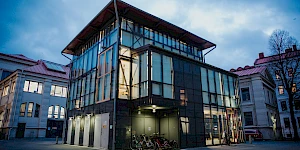
with Nick Aikens (L'Internationale Online / HDK-Valand) and Mills Dray (HDK-Valand), 17h00, Glashuset
-
Moderna galerija
Book Launch: Collective Study in Times of Emergency, Ljubljana
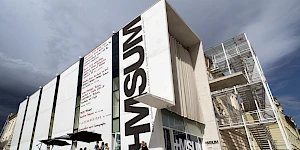
with Nick Aikens (L'Internationale Online / HDK-Valand), Bojana Piškur (MG+MSUM) and Martin Pogačar (ZRC SAZU)
-
WIELS
Book Launch: Collective Study in Times of Emergency, Brussels
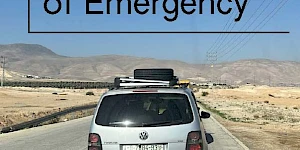
with Nick Aikens (L'Internationale Online / HDK-Valand), Subversive Film and Alex Reynolds, 19h00, Wiels Auditorium
-
NCAD
Book Launch: Collective Study in Times of Emergency, Dublin

with Nick Aikens (L'Internationale Online / HDK-Valand) and members of the L'Internationale Online editorial board: Maria Berríos, Sheena Barrett, Sara Buraya Boned, Charles Esche, Sofia Dati, Sabel Gavaldon, Jasna Jaksic, Cathryn Klasto, Magda Lipska, Declan Long, Francisco Mateo Martínez Cabeza de Vaca, Bojana Piškur, Tove Posselt, Anne-Claire Schmitz, Ezgi Yurteri, Martin Pogacar, and Ovidiu Tichindeleanu, 18h00, Harry Clark Lecture Theatre, NCAD
-
–
Collective Study in Times of Emergency, Amsterdam
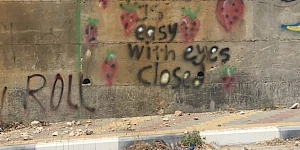
Within the context of ‘Every Act of Struggle’, the research project and exhibition at de appel in Amsterdam, L’Internationale Online has been invited to propose a programme of collective study.
-
Museo Reina Sofia
Poetry readings: Culture for Peace – Art and Poetry in Solidarity with Palestine
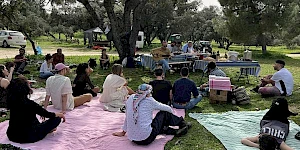
Casa de Campo, Madrid
-
WIELS
Collective Study in Times of Emergency, Brussels. Rana Issa and Shayma Nader
Join us at WIELS for an evening of fiction and poetry as part of L'Internationale Online's 'Collective Study in Times of Emergency' publishing series and public programmes. The series was launched in November 2023 in the wake of the onset of the genocide in Palestine and as a means to process its implications for the cultural sphere beyond the singular statement or utterance.
Related contributions and publications
-
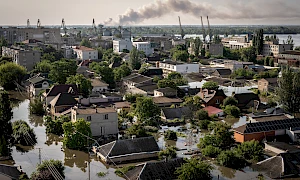
Statement on the attack on Kakhovka Water Dam
L’Internationale ConfederationStatements and editorials -
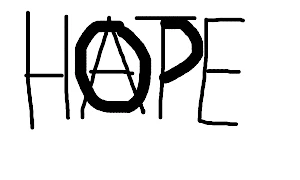
The Repressive Tendency within the European Public Sphere
Ovidiu ŢichindeleanuInternationalismsPast in the Present -
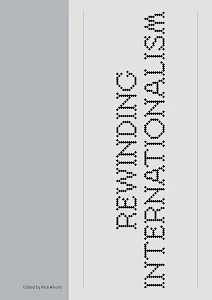
Rewinding Internationalism
InternationalismsVan Abbemuseum -
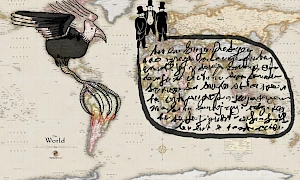
Troubles with the East(s)
Bojana PiškurInternationalismsPast in the Present -
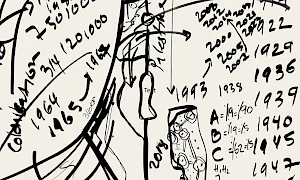
Right now, today, we must say that Palestine is the centre of the world
Françoise VergèsInternationalismsPast in the Present -
Body Counts, Balancing Acts and the Performativity of Statements
Mick WilsonInternationalismsPast in the Present -
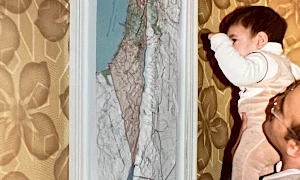
Until Liberation I: Learning Palestine
Learning Palestine GroupInternationalismsPast in the Present -
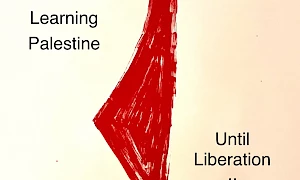
Until Liberation II: Learning Palestine
Learning Palestine GroupInternationalismsPast in the Present -
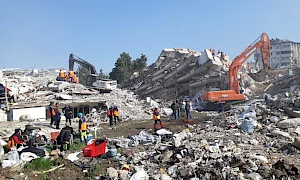
In solidarity with all the people affected by the earthquake in Turkiye and Syria
L’Internationale ConfederationStatements and editorials -
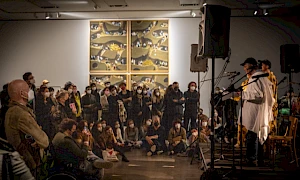
Public letter on WHW termination as directors of Kunsthalle Wien
L’Internationale ConfederationStatements and editorials -
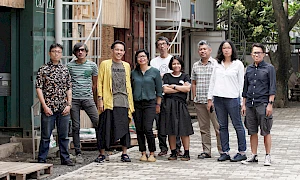
Statement in support of documenta fifteen
L’Internationale ConfederationStatements and editorialslumbung -
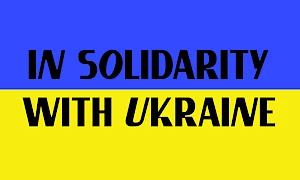
Never Again War!
L’Internationale ConfederationEN es pl sl sv ca nl ukStatements and editorials -
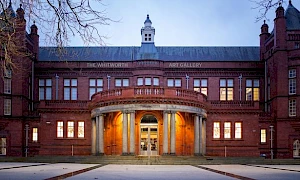
Statement on the dismissal of Alistair Hudson
L’Internationale ConfederationStatements and editorials -
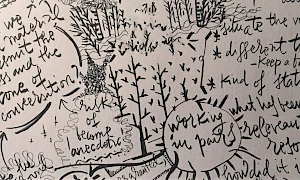
L’Internationale Public Statement on the recent events at MACBA
L’Internationale ConfederationStatements and editorialsMACBA -
L’Internationale statement: Towards a healthy society
Statements and editorials -
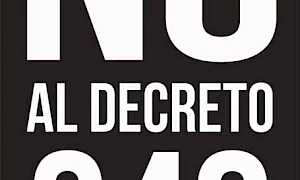
Standing up for the rights of all artists to free and independent expression
L’Internationale ConfederationStatements and editorials -
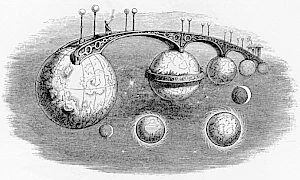
Tearing Down Bridges – Turkey's Withdrawal from Creative Europe
L’Internationale ConfederationStatements and editorials -
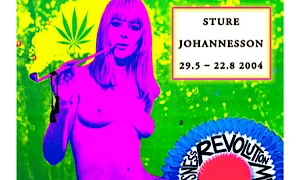
Of Cats and Canary Birds: Statement in Support of Lunds Konsthall
L’Internationale ConfederationStatements and editorials -
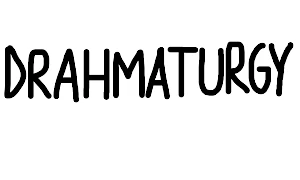
How Much Austerity Can Europe Endure?
L’Internationale ConfederationStatements and editorials -
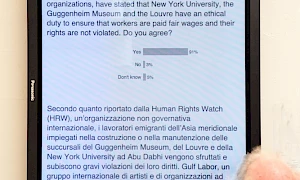
L'Internationale supports Walid Raad, Andrew Ross and Ashok Sukumaran after the recent ban on their entry to the UAE
L’Internationale ConfederationStatements and editorials -
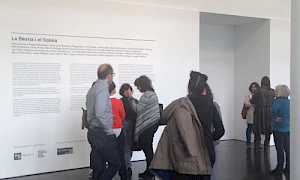
L'Internationale statement in support of the decision to open "La Bestia y el soberano" (The Beast and the Sovereign)
L’Internationale ConfederationStatements and editorialsMACBA -
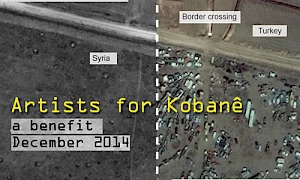
Artists for Kobanê: An online auction to benefit refugees from Kobanê
L’Internationale Online Editorial BoardStatements and editorials -
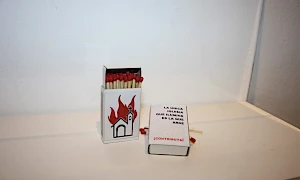
L'Internationale statement in support of MNCARS
L’Internationale ConfederationEN es sl nl trStatements and editorialsMuseo Reina Sofia -
New online platform for research, resources and discussion
L’Internationale ConfederationStatements and editorials -
Editorial: Towards Collective Study in Times of Emergency
L’Internationale Online Editorial BoardEN es sl tr arInternationalismsStatements and editorialsPast in the Present -
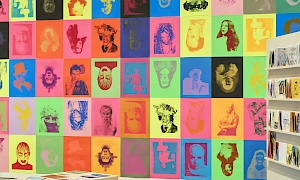
Opening Performance: Song for Many Movements, live on Radio Alhara
Jokkoo with/con Miramizu, Rasheed Jalloul & Sabine SalaméEN esInternationalismsSonic and Cinema CommonsPast in the PresentMACBA -
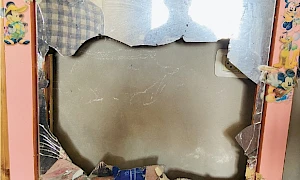
Biz Ezelden Beri Buradayız. Filistinli Şairlerin Kaleminden
Rana IssaEN tr arInternationalismsPast in the Present -
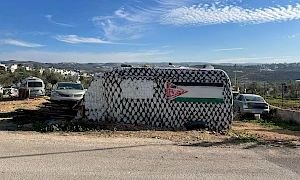
Diary of a Crossing
Baqiya and Yu’adInternationalismsPast in the Present -
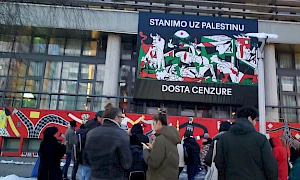
The Silence Has Been Unfolding For Too Long
The Free Palestine Initiative CroatiaInternationalismsPast in the PresentSituated OrganizationsInstitute of Radical ImaginationMSU Zagreb -
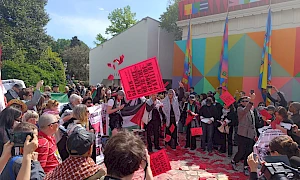
One Day, Freedom Will Be
Françoise Vergès, Maddalena FragnitoInternationalismsLand RelationsClimateInstitute of Radical Imagination -
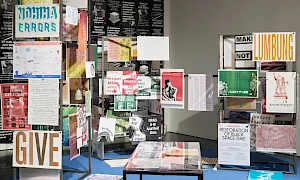
Everything will stay the same if we don’t speak up
L’Internationale ConfederationEN caInternationalismsStatements and editorials -

War, Peace and Image Politics: Part 1, Who Has a Right to These Images?
Jelena VesićInternationalismsPast in the PresentZRC SAZU -
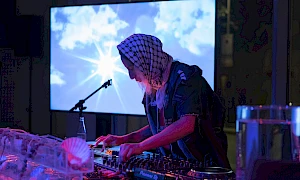
Live set: Una carta de amor a la intifada global
PrecolumbianEN esInternationalismsSonic and Cinema CommonsPast in the PresentMACBA -
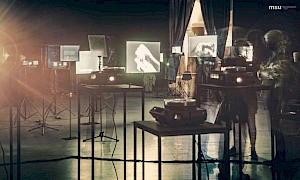
Rethinking Comradeship from a Feminist Position
Leonida KovačSchoolsInternationalismsSituated OrganizationsMSU ZagrebModerna galerijaZRC SAZU -
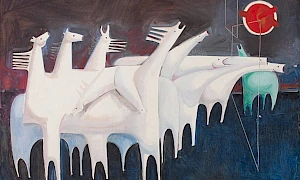
The Genocide War on Gaza: Palestinian Culture and the Existential Struggle
Rana AnaniInternationalismsPast in the Present -
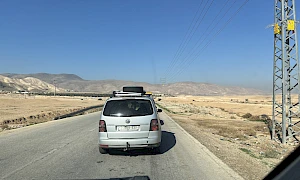
Broadcast: Towards Collective Study in Times of Emergency (for 24 hrs/Palestine)
L’Internationale Online Editorial Board, Rana Issa, L’Internationale Confederation, Vijay PrashadInternationalismsSonic and Cinema Commons -
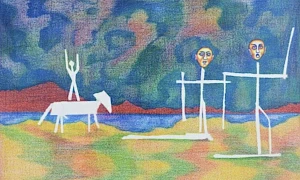
Beyond Distorted Realities: Palestine, Magical Realism and Climate Fiction
Sanabel Abdel RahmanEN trInternationalismsPast in the PresentClimate -

Collective Study in Times of Emergency. A Roundtable
Nick Aikens, Sara Buraya Boned, Charles Esche, Martin Pogačar, Ovidiu Ţichindeleanu, Ezgi YurteriInternationalismsPast in the PresentSituated Organizations -
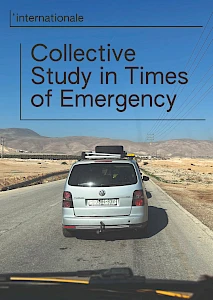
Collective Study in Times of Emergency
InternationalismsPast in the Present -
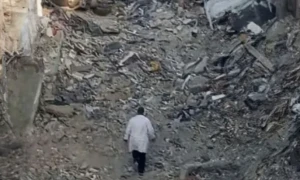
S come Silenzio
Maddalena FragnitoEN itInternationalismsSituated Organizations -
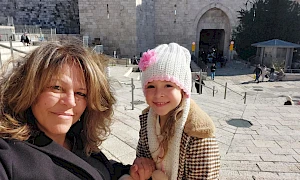
ميلاد الحلم واستمراره
Sanaa SalamehEN hr arInternationalismsPast in the Present -
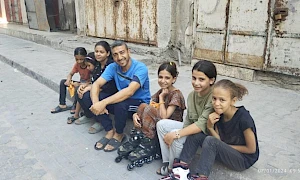
عن المكتبة والمقتلة: شهادة روائي على تدمير المكتبات في قطاع غزة
Yousri al-GhoulEN arInternationalismsPast in the Present -

Archivos negros. Episodio I. Internacionalismo radical y panafricanismo en el marco de la guerra civil española
Tania Safura AdamEN esInternationalismsPast in the Present -
L'Internationale Mission Statement
L’Internationale ConfederationEN esStatements and editorials -

Re-installing (Academic) Institutions: The Kabakovs’ Indirectness and Adjacency
Christa-Maria Lerm HayesInternationalismsPast in the Present -
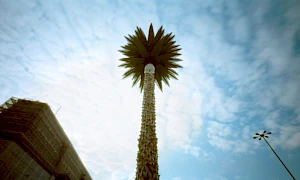
Palma daktylowa przeciw redeportacji przypowieści, czyli europejski pomnik Palestyny
Robert Yerachmiel SnidermanEN plInternationalismsPast in the PresentMSN -

Masovni studentski protesti u Srbiji: Mogućnost drugačijih društvenih odnosa
Marijana Cvetković, Vida KneževićEN rsInternationalismsPast in the Present -
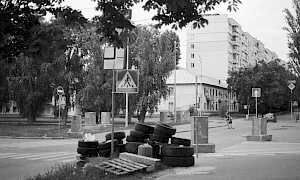
No Doubt It Is a Culture War
Oleksiy Radinsky, Joanna ZielińskaInternationalismsPast in the Present -
Cinq pierres. Une suite de contes
Shayma Nader–EN nl frInternationalisms -
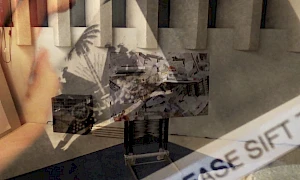
Dispatch: As Matter Speaks
Yeongseo JeeInternationalismsPast in the Present -
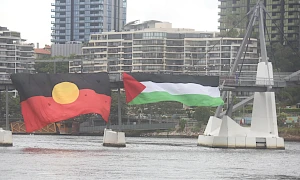
Speaking in Times of Genocide: Censorship, ‘social cohesion’ and the case of Khaled Sabsabi
Alissar SeylaInternationalisms